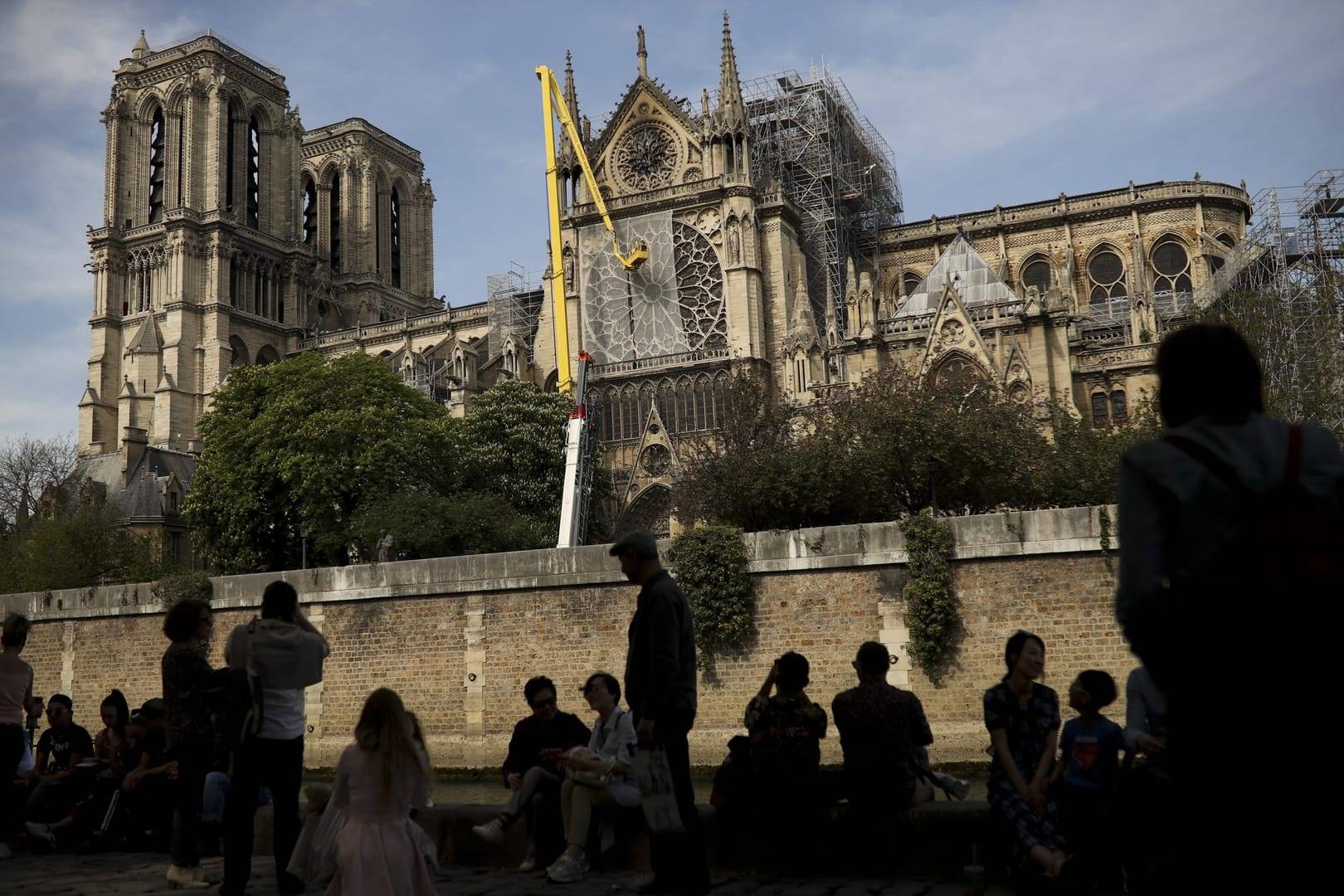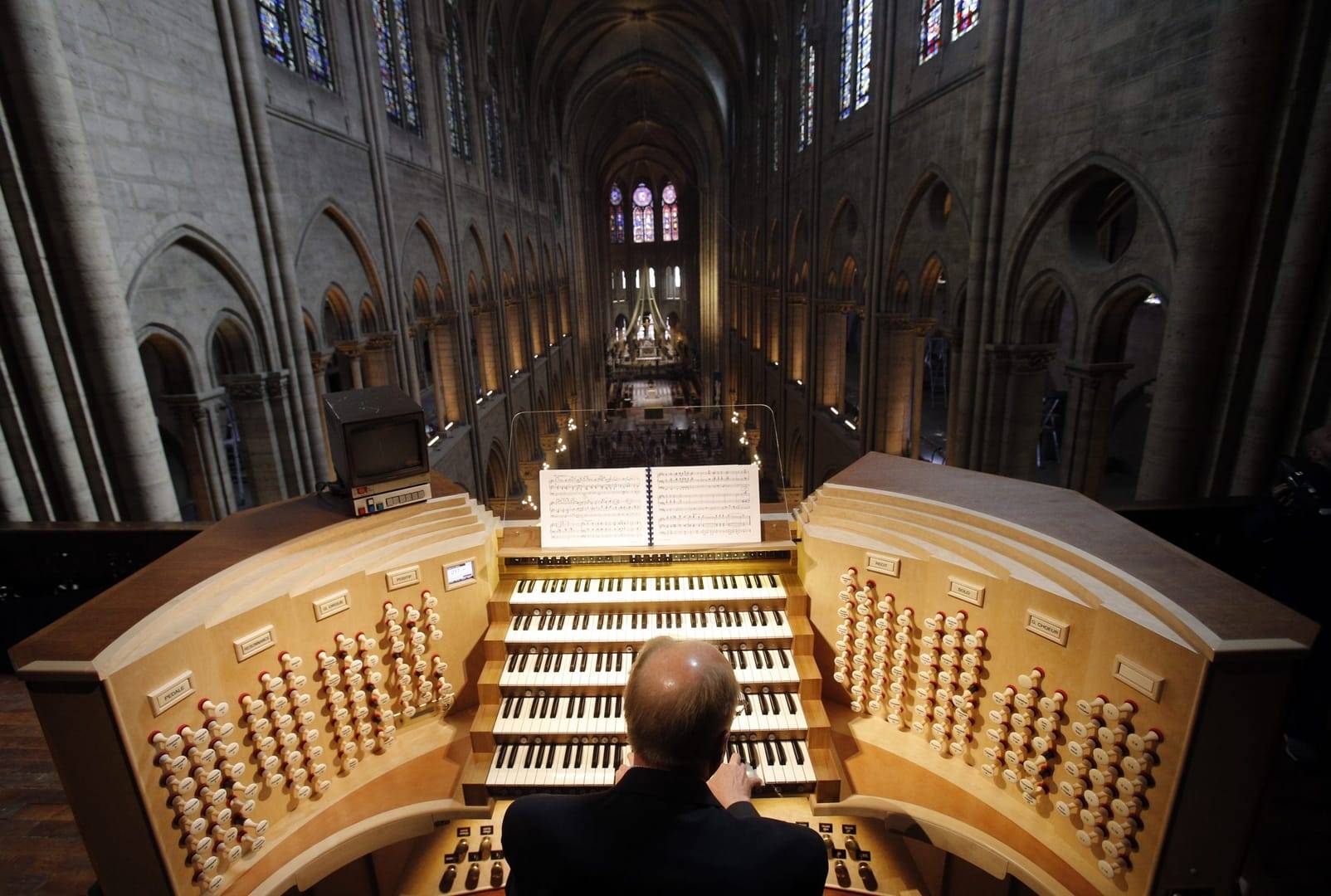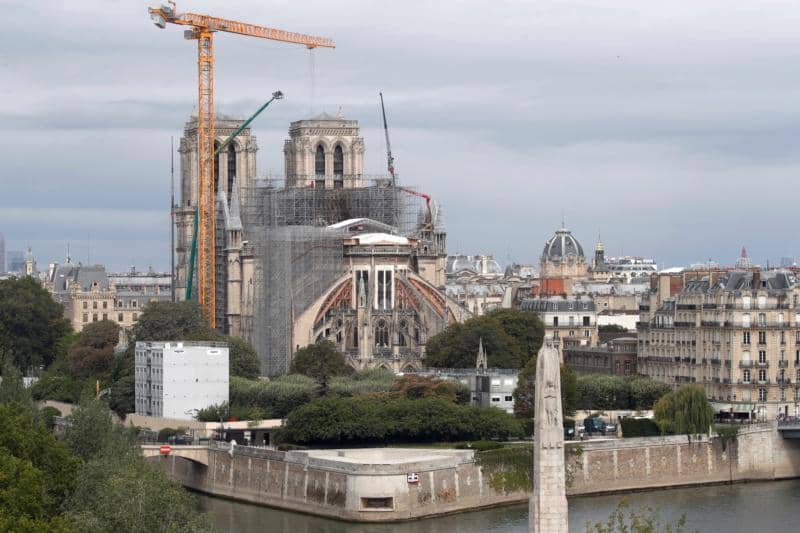PARIS – Many hearts were moved while watching the blaze of Notre Dame cathedral on Monday, but for French Catholics – who rarely display their faith in their highly secularized country – the sight also inspired a desire for renewal and a return to their roots.
“I think Catholics realized how unashamed they should be about the treasure we had, not just the building but the spiritual treasure,” said Francois Jacob, Director of Obole Digital, a start-up that offers innovative fundraising for churches, in an April 18 interview with Crux.
In collaboration with Michelle Powers and Dustin Etheridge from Currents News, Crux traveled to Paris to discover what remained after the catastrophic fire at Notre Dame. What we found was a country united in the pursuit of renewal, not just of the cathedral itself, but also of the faith that inspired its construction almost 1,000 years ago.
Sometimes called “Zombie Catholics,” French faithful have keenly adapted to a culture of laïcité, a unique brand of French secularism that imposes a severe separation between church and state. Observers say many Catholics in the country subscribe to a form of Nicodemism –relegating faith to the private sphere.
“We are professionals at navigating in a secularized world,” Jacob said.
Many French Catholics say the fires that engulfed Notre Dame may have also set off a spiritual spark, especially in the new generations, inspiring them to openly profess their faith and, from the rubble, to rebuild their foundations.
We spoke to activists who, along with thousands of young and old as well as families, marched in the street of Paris to openly proclaim their pro-life beliefs. A bishop in the Parisian suburbs who witnessed many young people join him for the Via Crucis on Friday told us that we may be looking at a new evangelizing moment for Catholics in France.
Relations with the French state remain complicated, they admitted, but there’s something about watching the heart of France’s religion and culture almost perish that drives the message home: Some things are worth fighting for.
A moment to evangelize
Marie Cabaud and Joseph Meaney are an American-French couple working for the pro-life movement near Paris. Both are committed to the pro-life cause and have devoted their efforts to help galvanize the local community, which starting in 2014 brought more than 50,000 French people to the streets in defense of the unborn.
“It’s something that had never happened before,” Cabaud told Crux in an April 18 interview. “French Catholics don’t have a tradition of going out on the streets.”
While she acknowledged that Notre Dame holds a special significance as a historic and cultural center of Paris, she was also concerned that its central role in the eyes of French faithful might be overlooked.
“The really important thing about this is that Notre Dame is the heart of the Church,” she said. “We need to focus on rebuilding it from the inside, not just on the outside.”
Her husband observed that since they moved to Paris in 2014, France has undergone a series of crucial events, from bloody terrorist attacks to the victory in the World Cup, that have contributed to a perception that the country may be going through “a moment of deep change,” which culminated in Notre Dame’s blaze.
“It feels like the country has been really a focal point of a lot of conflict and a lot of suffering, but at the same time a lot rejoicing too,” Meaney said. “It seems like there is a real spiritual struggle taking place.”
The fire at Notre Dame has inspired Catholics in France to ask themselves questions about their faith and beliefs, said Arnaud Boutheon, representative for the Knights of Columbus in Paris, in an April 18 interview.
[The Knights of Columbus are a principal sponsor of Crux.]
“When we are seeking our identity, when we seek what unites all French people, we realize through this dramatic event that all people were deeply moved and all division can disappear in front of this humanity,” he said.
Boutheon organized the “Lady of Our Hearts” light show on the façade of Notre Dame last year, which gathered thousands before the cathedral in October. He said that the head of the Knights, Carl Anderson, asked him to encourage French Catholics to reconnect with their roots and heritage.
“This time is a huge opportunity for us to evangelize because many people from abroad and France will come back in the coming days for Easter,” he said.
“Beyond the drama, there is hope.”
The Cube and the Cathedral
In what is known as “the Manhattan of Paris,” the cemented heart of France’s business and technology center La Defence, Bishop Matthieu Rouge of Nanterre prepared to guide faithful through the Via Crucis on Friday.
“I think France may be one of the least religious countries in the world,” he said in an April 19 interview. “It’s very difficult for French people, for example, to say that they are Catholic.”
The diocese of Nanterre is in the suburbs of Paris and its landscape is dominated by the Grande Arche, a massive white cube. Under its shade, Rouge led Catholics though the square, with numbers steadily growing at every station, including many young people and faces that the bishops said he had never seen before.
“It’s a moment of getting together,” said Silvia, a French-Italian Catholic attending the Way of the Cross.
“People here are very discreet about religion and even more when it comes to politics,” she said, adding that the Notre Dame fire might “help let their feelings emerge.”
For Jean Paul, among the faithful in the procession, the blaze at the cathedral caused “deep sorrow.”
“We have cried but we have also prayed,” he said. “I have seen a lot of people pray at this time, not just for the cathedral but for the Church in general.”
“It is also a way to discover what is wrong in the Church, and to clarify and move toward the recovery of the Church,” he added.
According to the bishop, the fire might inspire believers to meet and share their feelings together and suggested that it may encourage Catholics to live out their faith and possibly evangelize.
Concerning relations with the state, he was more cautious, describing French government/Church relations as “paradoxical.”
“We speak a lot together, and every chief of state has to know that this is a deeply rooted Catholic country, but at the same moment he or she has to promote tough secularism,” he said.
The rebuilding of Notre Dame, he added, will witness these awkward relations unfold.
“I think we might experience at some points the usual dynamic between the Church and the French government, which is many relations but sometimes tough relations.”
The Call to build Cathedrals
Young Catholics have been the most receptive so far to the call to action that the sight of the burning Notre Dame inspired. Groups of youth have emerged at the grass-roots level, like the “Batisseur,” the builders, who are banding together to look for ways to save the cathedral.
“With the big marches for life of 2014, young people have realized that we cannot rely on the state anymore or institutions like my grandparents and parents,” Jacob said, adding that for the past 30 years Catholics were accustomed to keeping their faith away from the public eye.
“We should be more unashamed and obvious, or at least more vocal about what we do,” he said.
He added that many young people watched helplessly as firefighters rushed in to save the cathedral and asked themselves how they could use their talents to help save Notre Dame, wondering if “God is sending us a signal to go deeper and deeper in the mystery of death and the resurrection.”
“Maybe it’s time to go back to the roots, not just business and education and marches but we may have to rebuild churches again,” he said.
“Maybe we are all called to become builders of cathedrals.”
















